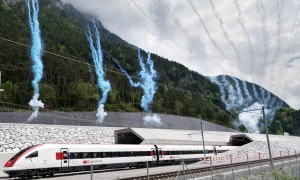🕑 Reading time: 1 minute
The construction industry is known to be highly fragmented, comprising of various stakeholders, including architects, suppliers, contractors, and indirect suppliers. Supply chain management (SCM) in the industry can play a crucial role in improving coordination between the stakeholders while ensuring the quality and profitability of a construction project.
Contents:
Supply Chain Management in Construction
The concept of SCM emerged from the manufacturing sector and was popularised by automotive manufacturers who used tools such as just-in-time delivery and logistics management for their production processes. The application of SCM in construction has been limited and focused more on a particular aspect of the supply chain rather than the industry as a whole.

The supply chain is a nexus of organizations involved, from the point where the supplier procures the raw material until the point the client receives the product, on the different activities and processes that produce value in the form of products and services for the final client.
Products and services offered by organizations in the construction industry account for approximately 80% of the project cost. These resources are often made to order or unique to each project with limited scope for repetition. SCM can help in the efficient management of how and when these products and services are procured while improving the overall quality, functionality, and profitability of a project.
Benefits of SCM in Construction
SCM can provide a competitive advantage for organizations by enabling them to manage the various factors and variables within the project more effectively and efficiently than their competitors. It can ensure efficient management of materials and information to improve the performance of their suppliers.
Organizations can reduce uncertainty related to materials, equipment, and logistics within the supply chain by creating long-term alliances, which further leads to reduction in costs. SCM also provides equal opportunities to all vendors and enables the formation of repeat alliances with reliable suppliers.
In addition, SCM can ensure that the project timelines are created in an effective way, and deadlines are met, thus improving client satisfaction and the organization’s reputation in the industry. Incorporating digital technologies can further improve the implementation of SCM in the sector.
Digital Supply Chain in Construction
The highly fragmented nature of the construction industry makes it difficult for managing the construction process, especially when a project involves multiple suppliers and contractors. A digital supply chain can help in synchronizing the supply chain network across the numerous parties involved in the project.
Digital technologies can provide data related to materials, equipment, and construction milestones while coordinating the schedules of the various parties. It can also assist in collating inventory details across all parties and enable real-time decision-making based on the data.
Further, the use of technologies such as the Internet of Things (IoT) and artificial intelligence (AI) can provide insights into the performance of equipment and assets. Such technologies can also aid in quality improvement, resource consumption, and cost reduction.
Challenges for SCM in Construction
The lack of a proven or standardized SCM model for the construction industry makes it challenging to be implemented effectively. One of the most common challenges for SCM in construction is the lack of integration and collaboration between all the parties involved.
Design changes, inaccurate calculations, and lack of trust among the stakeholders can be a hurdle in the effective implementation of SCM. Poor quality of materials and equipment, inadequate training of subcontractors and workers are some of the other challenges. Further, there are no tools to efficiently measure the performance of all the parties involved in the project.
Steps to Overcome Challenges
Successful implementation of SCM in construction can only be achieved when all the parties involved are receptive to change across all aspects of the supply chain. Such change can be brought about through a cultural shift and an understanding among all parties on how SCM can benefit and generate profits.
Improvement of communication and trust between the stakeholders is essential to manage the risks and unexpected events throughout the project development. Involving all parties in the supply chain during the early stages of the project can help understand the timelines, risks, and requirements.
Effective management of subcontractors should also be implemented by considering the subcontractor as part of the supply chain and inviting inputs from them to add value to the project. Finally, specific parameters must be developed to use as a criteria to form alliances with supply chain partners, while also ensuring ways to monitor the performance of the alliance partners.
FAQs
The supply chain is a nexus of organizations involved, from the point where the supplier procures the raw material until the point the client receives the product, on the different activities and processes that produce value in the form of products and services for the final client.
1. SCM can provide a competitive advantage for organizations by enabling them to manage the various factors and variables within the project more effectively and efficiently than their competitors.
2. With SCM, organizations can reduce uncertainty related to materials, equipment, and logistics within the supply chain by creating long-term alliances, which further leads to reduction in costs.
3. SCM can ensure that the project timelines are created in an effective way, and deadlines are met, thus improving client satisfaction and the organization’s reputation in the industry.
The lack of a proven or standardized SCM model for the construction industry makes it challenging to be implemented effectively. One of the most common challenges for SCM in construction is the lack of integration and collaboration between all the parties involved.
Read More
Vendor Management in the Construction Industry
What is Facility Management (FM)in the Construction Industry?


